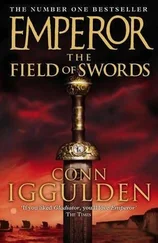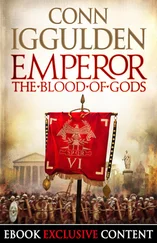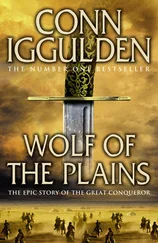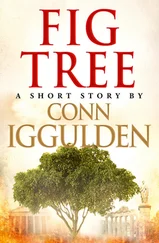Uriang-Khadai waited patiently while Kublai thought. The orlok had not minded Kublai’s endless interference in the supplies and formations. Such things were to be expected from a new man. The battles, however, were the orlok’s responsibility. Mongke himself had made that clear before they left.
‘Look after him,’ the khan had said. ‘Don’t let my younger brother get himself killed while he’s in a dream.’ The two old campaigners had shared a smile of understanding and then Uriang-Khadai had ridden out. Now the time was upon him and he was prepared to guide Kublai through his first taste of warfare.
While he waited, Uriang-Khadai rubbed the ridge-lines of his cheeks. There were a few stubborn bristles that had somehow survived the years of scarring. He was never sure whether he should cut himself again or just yank the things out when they grew long enough. As Kublai pondered, Uriang-Khadai curled one long hair around his finger and jerked it free.
‘We must cross the Chin-sha Chiang river,’ Kublai said suddenly. He had pictured maps in his imagination, his recall almost perfect. Uriang-Khadai blinked in surprise and Kublai nodded, making his decision.
‘That is the name of the river you mentioned, orlok. It lies between us and the city I have been told to take. We must cross it at some point. They know the ground, which is why they have gathered on that side. They are content to defend it wherever we choose to cross. If we find a fording point, they will slaughter us in the waters, reducing us to the narrow ranks we can put in.’
Uriang-Khadai shook his head, struggling to find the right words to persuade a sheltered academic who had barely left Karakorum in his life.
‘My lord, they already have every advantage. We cannot also give them the choice of land, or we risk annihilation. Let me lure them along the banks for thirty miles. I will have the scouts out looking for places to cross. There will be more than one. We can have archers cover those crossing and then we can come up behind them.’
Kublai could feel the silent pressure from Uriang-Khadai, waiting for him to give way. The man was too obvious and it irritated him.
‘As you say, orlok, they have chosen their ground carefully. They will expect us to rush across the river like the wild tribesmen they think we are and then die in our thousands.’ He thought suddenly of a way to get enough men across quickly and he smiled.
‘No. We will take them on here, orlok. We will surprise them.’
Uriang-Khadai stammered for an instant.
‘My lord, I must advise against your decision. I …’
‘Send General Bayar to me, Uriang-Khadai. Return to the tumans.’
The orlok bowed his head instantly, all sign of his anger vanishing like a snuffed candle.
‘Your will, my lord.’
He rode away even more stiff-backed than he had come. Kublai stared sourly after him. It was not long before Bayar was in the orlok’s place, looking worried. He was relatively young for his authority, a man in his early thirties. Unlike Uriang-Khadai, he had a smooth face, except for a wisp of black hair at his chin. There was a strong odour of rot around him. Kublai had long grown used to it as he accepted the man’s greeting. He was in no mood to ease Bayar’s misgivings.
‘I have a task for you, general. I order you to carry it out without complaint or argument, do you understand?’
‘Yes, my lord,’ Bayar replied.
‘When I was a boy, I read about warriors with Genghis crossing a river using a sheepskin raft. Have you heard of such a thing?’
Bayar shook his head, flushing slightly.
‘I do not have the reading, my lord.’
‘Never mind. I recall the idea. You will need to slaughter some six hundred sheep for what I have in mind. Take care to cut them high on the neck, so that the skin is undamaged as it is peeled back. The wool must be shaved away, I believe. This work is delicate, Bayar, so give it to careful men and women in your command.’
Bayar looked blankly at him and Kublai sighed.
‘There is no harm in knowing a little history, general. We should not have to relearn every skill each generation. Not when the hard work has already been done. The idea is to sew up the holes in the skins, leaving just one near the neck. Strong men can blow into the skin, using tar or tree sap to seal the gaps. Do you understand? Have vats of both substances put to boil. I do not know which will work best. When they are tight with air, the skins will float, general. Bind them together in a frame of light poles and we will have rafts capable of carrying many men at a time.’ He paused to run calculations in his head, one thing Kublai could always do quickly.
‘With three rafts, say eighteen hundred sheepskins, we should be able to carry … twelve hundred warriors across the river at a time. In half a day, we could put some twenty thousand men on the opposite side. I will assume another half day to swim horses across, using the rafts to guide them. Yes, with ropes around their necks to help them swim against the current. A day in all, if there are no mishaps. How long will you need to put the rafts together?’
Bayar’s eyes widened as he saw the prince had lost his internal gaze and was once again focused on him.
‘Two days, my lord,’ he said with false confidence. He needed to impress the man who commanded him and Uriang-Khadai had already lost face. Bayar did not want to join him in incurring the displeasure of the khan’s own brother.
Kublai inclined his head as he thought.
‘Very well. This is your only task until it is complete. I will hold you to two days, general. Now, give the order to halt the column. Get scouts back into the area where the enemy wait. I want to know every detail of the river: the current, the banks, the terrain. Nothing is too trivial to bring to me. Have them report after the evening meal.’
‘Yes, my lord.’
Bayar swallowed nervously as he was dismissed. He had never heard of sheepskins being used in such a way. He was going to need help and he guessed that Uriang-Khadai was not the man to ask. As the horns sounded the halt and the tumans began to dismount and tend their horses, Bayar saw the cart that carried Kublai’s chief adviser, Yao Shu. The old Chin monk would know of such strange things as floating rafts, Bayar was almost certain.
As the sun came up the following day, Bayar had lost himself in the challenge of the task. The first bulbous hides had been prepared by the previous evening and carried by horse to the nearby river. With great ceremony the bobbing things had been placed on the waters, with volunteers to ride them over. Both men had sunk before they reached halfway and had to be dragged out by ropes attached to their waists. It seemed impossible, but according to Yao Shu it had certainly been done on a smaller scale. They tried rubbing oil into the skins as soon as the wool had been shaved off, then blowing and sealing them quickly, before leaving them to dry. As Bayar returned to the banks, he sent a silent prayer to the earth mother. He had gambled on the oil working and so had thousands of families preparing them. If the latest batch failed as well, he would not make the limit he had set himself. Standing in the morning gloom, Bayar looked across at Yao Shu, taking confidence from his calm. They stood together as two warriors tied ropes to themselves and lay across the floating skins, pushing off from the bank. Neither man could swim and they looked deeply uncomfortable as they paddled across the dark water.
At halfway, the current was strong and those holding the ropes on the bank found themselves shuffling downstream with the floating warriors. Even so, they splashed on and Bayar let out a whoop as he saw one of them stand and raise his arm from the opposite shallows, before clambering back on for the return trip. That went much faster, with the ropes pulled by many willing hands.
Читать дальше
Конец ознакомительного отрывка
Купить книгу











